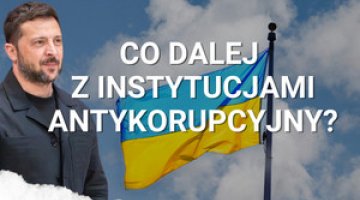The Ukrainian government’s systematic pressure on the media
On 9 October, Ukraine’s leading news portal, Ukrayinska Pravda (UP), reported that it had been under continued pressure from the Office of the President of Ukraine (OPU). UP issued a statement complaining about its journalists being denied access to government officials and their closed press briefings. The OPU was also accused of pressurising businesses to cease advertising with the portal. UP recounted President Volodymyr Zelensky’s sharp reaction to a question posed by its editor, Roman Kravets, during a press conference on 27 August. In the editors’ view, the individual responsible for the pressure is the president’s new communications advisor, Dmytro Lytvyn.
In response to UP’s statement, Channel 5, a television station associated with former president Petro Poroshenko, made similar complaints, as did the news portal Dzerkalo Tyzhnia, which is critical of the government. The pressure has been condemned by deputies from European Solidarity (Poroshenko’s party), Ukrainian and international journalist associations, as well as anti-corruption organisations. The OPU has not provided any comment on the matter.
Ukrainian political leaders have repeatedly sought to impede the work of journalists who criticise them, raising concerns about the rule of law and democracy in the country. The media and the opposition have responded cautiously to UP’s claims, possibly due to the lack of public evidence supporting the accusations or fear of retaliation from the OPU. Despite the muted public response from the West thus far, the issue may still attract broader attention.
Commentary
- The statement from Ukrayinska Pravda is yet another instance exposing government pressure on the media. In January 2024, two scandals emerged involving attacks on Yuriy Nikolov and surveillance of employees of the investigative portal Bihus.info (see ‘Ukrainian media in the crosshairs of the secret services’). In April, journalist Yevhen Shulhat received a military summons, likely as retaliation for his investigation into Ilya Vitiuk, head of the Cybersecurity Department at the Security Service of Ukraine (SBU). In May, UP revealed that the former head of the Ukrainian news agency Ukrinform had attempted to influence journalists’ work by creating lists of undesirable topics and experts. Similar allegations have been made against the Telethon (a 24-hour news programme jointly run by several TV stations since the beginning of the war), which has rarely invited opposition politicians. Articles published on UP frequently criticise the concentration of power in the hands of Andriy Yermak, head of the Office of the President, and abuses by his deputy, Oleh Tatarov. Therefore, the government’s recent measures may be a form of retaliation for the portal’s activities.
- Cases of pressure on journalists often come to light due to the diversity of media outlets and the well-developed network of civil society organisations that monitor the government. Each of these incidents negatively impacts the image of Ukraine’s leadership. Since the beginning of 2024, the Institute of Mass Information, a Ukrainian watchdog monitoring media freedom, has recorded approximately 170 incidents of violations of freedom of speech as of September this year. For comparison, there were 150 such incidents throughout 2023, nearly half of which were attributed to Russia, mainly involving cyberattacks on newsrooms, as well as threats or physical assaults on journalists in occupied territories and on the front lines. The American Committee to Protect Journalists (CPJ) has called for an end to the pressure on the media. At the same time, Ukraine’s score in the 2024 Reporters Without Borders’ press freedom index increased to 65 points – 4 points higher than in 2023 and 10 points higher than the year before – with the country rising from 106th to 61st place in the rankings.
- The reaction to UP’s reports has been notably restrained across Ukraine. Most media outlets have restricted their coverage to brief mentions of the issue, and the opposition has also remained relatively quiet, with only a few posts condemning the allegations appearing on Telegram. This muted response may stem from a lack of evidence supporting UP’s claims of “systematic pressure”, particularly those concerning the discouragement of advertisers (the issue of critical media not being invited to meetings with President Zelensky has been raised for some time). On the other hand, the cautious reaction may be due to fear of retaliation from the OPU, should the allegations prove to be true. The war has severely limited independent media’s opportunities to secure funding, so any actual loss of advertisers could deal a significant blow to them. This might explain why the most vocal response in this case has come from media outlets linked to Poroshenko.





